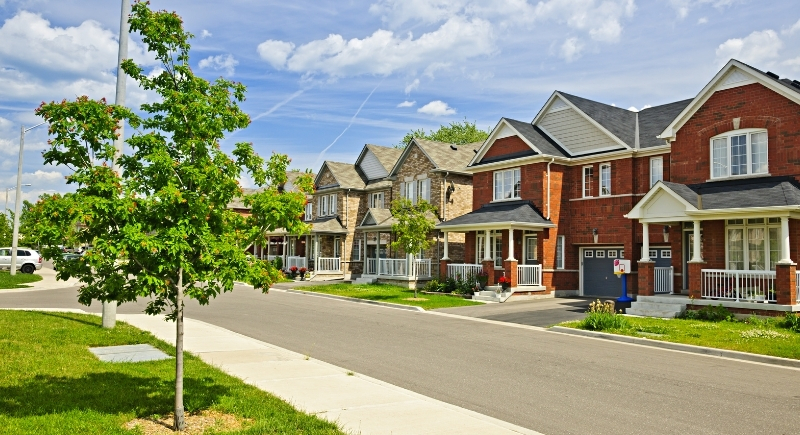Expert Tips For Finding A Home That’s A Genuine Bargain
It takes more than good luck and timing to find a genuine bargain in today’s housing market. You’ll come across homes that sit unnoticed or are quietly marked down, and others that have small issues which scare off buyers but don’t cost much to fix. In many cases, sellers under pressure are also open to lower offers or extra incentives. Knowing how to read the signs and where to focus your search can help you spot homes that are priced below their actual value.
These expert tips provide innovative ways to find better deals without compromising on what truly matters to you.
Start Your Search Before Competition Builds

Credit: Getty Images
Home shopping just before the market heats up can significantly impact your outcome. Agents often see more wiggle room on price when sellers haven’t yet been swamped by offers. Buyers who move early can avoid bidding wars and gain leverage, especially with listings that haven’t had time to gather momentum.
Target Properties That Have Sat On The Market

Credit: Getty Images
Homes listed for over 30 days often signal a motivated seller. Agents say each extra couple of weeks can open the door to price cuts, with discounts sometimes reaching 5–10%. Tracking stagnant listings gives you a pool of homes where the seller may be ready to negotiate.
Focus On Homes Needing Only Cosmetic Work

Credit: pexels
Ugly wallpaper, worn carpet, or mismatched cabinets often scare off buyers, but these are surface-level issues. If the structure and systems are sound, you can update the appearance without incurring significant costs. Many of these homes sell for lower prices simply because people can’t look past the dated décor.
Examine The Property’s Pricing History

Credit: Getty Images
If a home has been relisted or had its price cut several times, it usually points to overpricing or a seller eager to move. Knowing this gives you leverage, and it’s a clear sign the seller may accept less rather than risk sitting on the market again.
Explore Housing Types With Less Demand

Credit: Canva
Properties like duplexes, condos, or manufactured homes attract fewer buyers, which often makes them more affordable. Being flexible about the type of home you consider can reveal better value than the standard single-family house. With the right setup, some of these options can even provide rental income while you live there.
Consider Homes With Unpopular Features

Credit: Canva
There’s a market blind spot for homes on busy roads or with odd layouts. While not ideal for every buyer, they often sit longer and give you more leverage for negotiation. If you’re fine with a less-than-ideal view or room placement, you might land a better location than your budget normally allows.
Track Contingent Deals That May Collapse

Credit: Getty Images
Listings marked “contingent” often slip past buyers, but deals fall apart due to financing, inspections, or appraisals. Keeping a backup offer ready positions you to secure the home quickly if it comes back on the market, usually with less competition the second time.
Leverage Inspection Results For Concessions

Credit: Getty Images
Inspections reveal issues that can lead to big savings. Major findings, such as roof wear or electrical problems, can justify a lower price or credits at closing. Sellers often prefer addressing concerns financially rather than risking a collapsed deal or another round on the market.
Work With An Agent Who Knows The Micro-Market

Credit: Canva
Not all neighborhoods are the same, even within the same ZIP code. A good local agent picks up on seller patterns, pocket listings, and homes that might drop in price soon. That insight can mean getting in first with a serious offer.
Use Future Development Plans In Negotiations

Credit: pexels
If a seller cites a planned transit line or retail center to justify a higher price, verify the timeline to ensure it is accurate. Projects can take years or stall altogether. Using actual development schedules as leverage can help counter inflated pricing based on speculative growth.
Negotiate Beyond Just The Purchase Price

Credit: Canva
There’s more to value than the number on the listing. You can ask for help with closing costs, request to keep appliances, or request flexible move-in dates. Sometimes, these extras matter more to a seller than the sale price, especially if they’re in a hurry or trying to avoid double moves.
Look For End-Of-Quarter Or Year Developer Incentives

Credit: iStockphoto
Builders and developers often discount homes or add extras as they approach sales targets. Watching these cycles can yield upgraded finishes, reduced fees, or outright price drops. This tactic is especially effective in new construction communities nearing completion.
Maintain A Low Profile During Negotiations

Credit: iStockphoto
Overstating your enthusiasm weakens leverage. Staying measured during showings and discussions projects that you have options. Sellers who sense you’re not locked in are more likely to accommodate your terms or consider price adjustments to close the deal.
Be Ready To Walk Away If Terms Don’t Fit

Credit: Canva
Sometimes the best deal is the one you let go. Knowing your budget limits and deal-breakers upfront helps keep emotions from driving your decisions. Walking away without bluffing can also push some sellers to reconsider, especially if they weren’t expecting you to hold firm.
Use Government-Backed Programs To Stretch Your Budget

Credit: Getty Images
VA loans, USDA programs, and local grants are great for affordability, but they can also expand your buying power. These options often come with lower down payments or subsidized rates. Pair that financial boost with a smart negotiation, and you may afford more than expected without taking on extra risk.